5 Diets That Make Nutritionists Cringe

For most of us, our definition of healthy eating is always evolving. Not in the sense that the foods we consider healthy are different day to day (leafy greens FTW, always), but more so that our relationship with food and how we consume it changes and grows over time. I, for one, am pretty glad that what's "in" right now when it comes to health and wellness is the idea that there's no shame, and people approach it at their own pace. What works for my lifestyle might not work for yours, and vice versa. What's important is that the main goal of eating well is not to lose 20, 25, or 50 pounds but to maintain a healthy lifestyle in which you feel good, both in body and soul. This holistic approach is something I can get on board with—and something that we believe in here at THE/THIRTY.
But, of course, there are a lot of opinions and information about healthy eating out there, and particularly, there are a lot of diets out there. Some claim you'll drop pounds in less than a week; others will give you glowing skin; a few will make you rich. Okay, the last one is not true, but honestly, with the number of fad diets these days, I wouldn't be surprised if one promised that.

The long list of diets can get overwhelming, and it's hard to figure out what's real, what's safe, and what's actually doable. So I polled a couple of nutritionists to see what they thought about fad diets and what their general guidelines were for following any kind of diet.
What they had to say was helpful and informative, but it's important to note that we're not shaming anyone who lives by these eating plans. Ultimately, do what's best for your body, and make sure you're working with a healthcare professional (like a doctor or registered dietitian) to find something that works for you.
Diets to Avoid

Yes, nutritionists advise caution to anyone considering trying the most popular diet of 2018 and 2019. "I am very wary when my clients tell me they want to try a ketogenic diet," says Sarah Rueven, MS, RDN, CDN, founder of Rooted Wellness. "The keto diet limits very nutrient-dense foods like starchy vegetables, whole grains, and legumes—foods we should be eating more of, not less! These foods are packed with fiber, which can aid with weight loss, digestion, and even lower cholesterol levels. Fiber also feeds the healthy bacteria living in our gut. Our gut microbiome can influence our immunity, our mental health, our weight status, and much more."
Rueven also explains that there's not enough information out there about how keto can affect hormone levels and reproductive health in women. She says that women's hormones tend to fluctuate more than men's, and diet is a big factor in this. For instance, complex carbs can help balance hormone levels and provide sustained energy.
Amy Shapiro, MS, RD, CDN, founder and director of Real Nutrition, agrees, adding, "It was originally meant for epileptic children and for Parkinson's patients, and not meant for healthy individuals trying to lose weight. Low fiber can lead to constipation, and a diet with high saturated fat, like keto, can lead to elevated LDLs and raise cholesterol. Plus, it seems to only work in the short-term as more research studies come out."

"Unless required by allergies or intolerances, by avoiding gluten you may end up missing out on important vitamins and minerals," Shapiro says. "And eating gluten-free products isn't always healthier, as they are calorie-dense and void of nutrients like fiber—this can actually lead to weight gain."
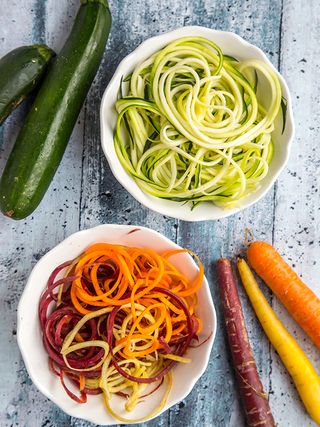
This one might not have a lot of longevity for some people. "While cutting out carbs can lead to short-term weight loss, these diets are rarely sustainable for the long-term," Rueven says. "Yo-yo dieting, or losing weight and then regaining it back and dieting again, can lead to more weight gain in the long-term than was lost initially."
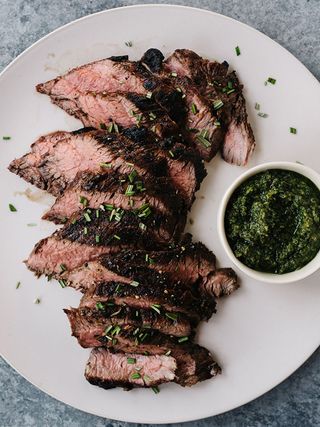
This one sounds similar to keto but perhaps with more meat sweats? Either way, Shapiro sees some red flags with this one because it involves eating only meat and virtually no fruits and vegetables, which means you're missing out on essential nutrients and vitamins.
"Massive amounts of literature indicate a plant-based diet reduces the risk for cardiovascular disease, type 2 diabetes, hypertension, etc.," she says. "Lack of fiber can lead to constipation and slow GI motility. The absence of total carbohydrates, fiber, and essential micronutrients can lead to chronic malnutrition in the long run."
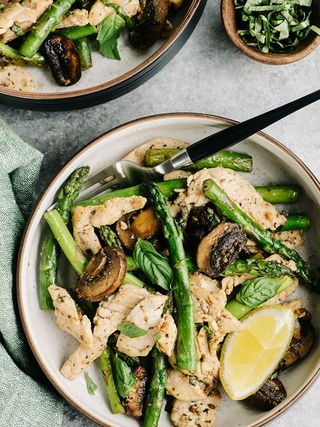
Come January 1, everyone seems to be on that Whole30 train. But this New Year, you might want to rethink it. While Shapiro says there are some positives about the diet (like eliminating sugar and processed white carbs), it's ultimately extremely restrictive. "It also [unnecessarily restricts] items, including certain carbs, which can lead to the loss of certain nutrients," she explains. "Plus, it restricts soy, dairy, and beans. Finally, it has an expiration date. What happens at the end of those 30 days? Return to an old pattern of eating? Most people go overboard and completely fall off the program in a big way, which can lead to binge-eating and disordered eating."
General Diet Tips to Live By

All of the experts we spoke to advised that people do their research and have a discussion with a healthcare professional before embarking on an eating plan. Again, every body is different and has different needs. Here's what else they had to say about following diets:

Yasi Ansari, MS, RD, CSSD, a national spokesperson for the Academy of Nutrition and Dietetics, recommends taking a hard look at the diet first. "Is the diet restrictive? Is it leaving out a particular food group?" she says. "For example, those following very low-carbohydrate diets cut out high-fiber grains, fruits, and veggies, which are important for a healthy digestive system. Also, those types of diets are missing out on a variety of vitamins and minerals such as B vitamins, vitamin C and E, and calcium (just to name a few). I really try to encourage people to avoid restrictive dietary behaviors. Diets can increase unhealthy eating patterns and increase the risk of developing unhealthy relationships with food."
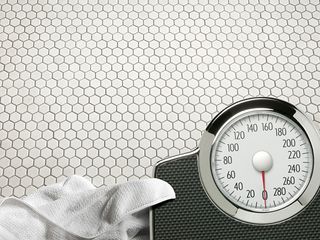
Anything that sounds unbelievable is probably too good to be true, so be skeptical of any diet that claims you'll lose weight rapidly. "Healthy weight loss, if that’s the reason someone is following a diet, will take time," Ansari says. "Weight that is lost quickly will be regained just as fast!"

Losing a lot of weight through dieting and then gaining it back isn't sustainable or healthy, Rueven says. "If you find yourself constantly in a yo-yo dieting cycle, it might be time work with a registered dietitian nutritionist to develop a sustainable eating pattern that fits your unique lifestyle and can help you lose or maintain your weight without deprivation," she advises.
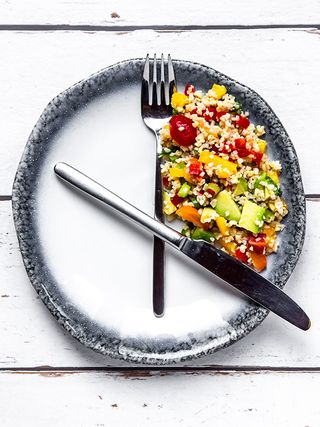
If there's one takeaway from all of this, it's probably that extremely restrictive diets probably aren't worth the trouble. "The goal is to follow eating patterns that can be followed long-term," Ansari says. "Imagine being on a rigid/restrictive diet where you have to reschedule plans with friends all the time because you aren't allowed to eat a balanced diet with a variety of food groups when out with friends."
Rueven adds that your body needs all three macronutrients—protein, fat, and carbohydrates—to function at its best, and if a diet severely restricts one of those, it's not healthy.

This is more about a healthy eating plan for the long-term rather than a crash diet. Fill up on those real, whole, unprocessed foods. "Rather than focusing all of your attention on what you should be restricting or avoiding, focus on filling up on nutrient-dense foods such as fruits, vegetables, whole grains, legumes, nuts, and seeds," Rueven says. "Including an appropriate balance of complex carbs, lean protein, and healthy fat can help with weight loss, hormone balance, lean muscle mass maintenance, and more."

You might want to quit your diet if you experience symptoms that are making you feel worse. "Some signs include exhaustion, extreme weight loss, brain fog, sores on the side of your mouth, brittle nails, weight gain or extreme weight loss, GI distress, dry skin, and weakness," Shapiro says.

"If you are having obsessive thoughts about food (e.g., how much you are eating and what you can and can't eat), and these thoughts are interfering with your ability to enjoy life, you might be slipping into a disordered eating pattern," Rueven says. If you or someone you know is experiencing these symptoms, consider seeking professional help.
Next up: These "Healthy" Foods Are Actually Scams
Disclaimer
This article is provided for informational purposes only and is not intended to be used in the place of advice of your physician or other medical professionals. You should always consult with your doctor or healthcare provider first with any health-related questions.
Sarah is lifestyle writer and editor with over 10 years of experience covering health and wellness, interior design, food, beauty, and tech. Born and raised in Los Angeles, she attended New York University and lived in New York for 12 years before returning to L.A. in 2019.
In addition to her work on THE/THIRTY and Who What Wear, she held editor roles at Apartment Therapy, Real Simple, House Beautiful, Elle Decor, and The Bump (sister site of The Knot).
She has a passion for health and wellness, but she especially loves writing about mental health. Her self-care routine consists of five things: a good workout, “me” time on the regular, an intriguing book/podcast/playlist to unwind after a long day, naps, and decorating her home.
-
 This Founder Shares Why We Should Start Celebrating Rest
This Founder Shares Why We Should Start Celebrating RestBurnout is nothing to be proud of.
By Kia Topps
-
 I Asked J.Lo's Trainer for His Very Best Fitness Tips
I Asked J.Lo's Trainer for His Very Best Fitness TipsGunnar Peterson has thoughts on how to get moving this season.
By Kia Topps
-
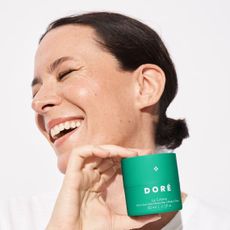 This Style Influencer Turned Founder Shares Her Favorite Ways to Start the Day
This Style Influencer Turned Founder Shares Her Favorite Ways to Start the DayA morning routine from London.
By Candice Aman
-
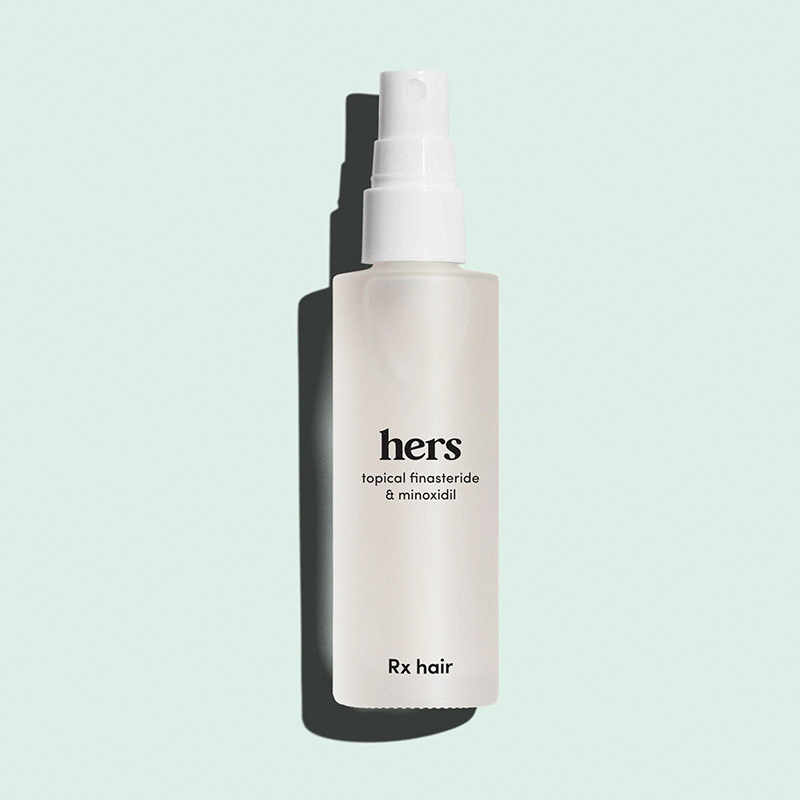 13 Products That Will Step Up Your Self-Care Game From Home
13 Products That Will Step Up Your Self-Care Game From HomeGet that glow from within.
By Natalie Gray Herder
-
 I Only Ate Sakara Life Meals for 30 Days—Here Are 7 Things That Happened
I Only Ate Sakara Life Meals for 30 Days—Here Are 7 Things That HappenedThe brand's 30-Day Fall Reset is finally here.
By Erin Jahns
-
 The 6 Warning Signs You're Not Getting Enough Protein
The 6 Warning Signs You're Not Getting Enough ProteinAnd what to eat to up your intake.
By Sarah Yang
-
 Everything This Professional Ballet Dancer Eats to Fuel Her For Performances
Everything This Professional Ballet Dancer Eats to Fuel Her For PerformancesHer grocery staples include high-quality French butter.
By Candice Aman
-
 These 8 Foods Are the Worst for Rosacea—Here's What to Eat Instead
These 8 Foods Are the Worst for Rosacea—Here's What to Eat InsteadControl those flare-ups.
By Sarah Yang

